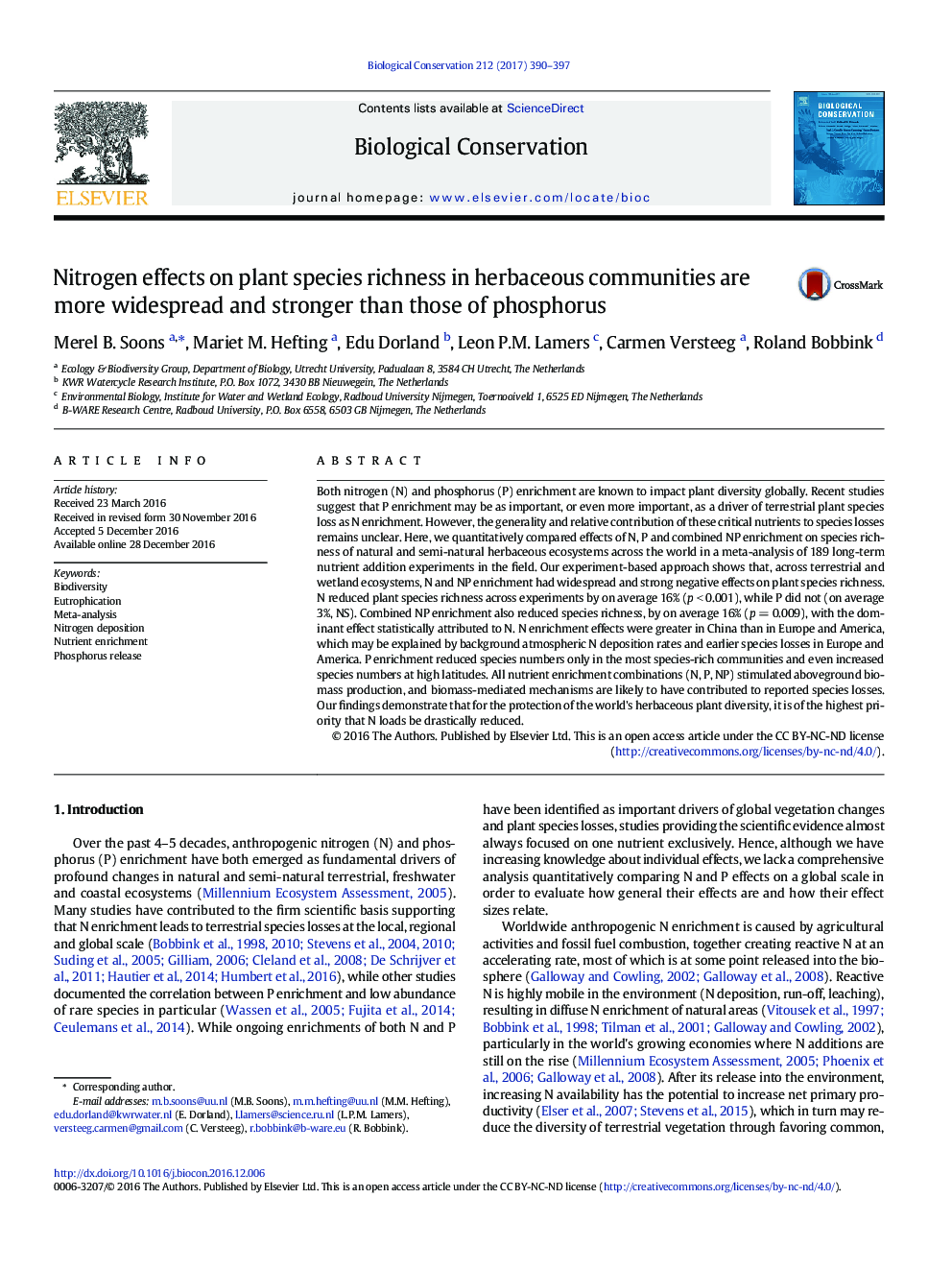| کد مقاله | کد نشریه | سال انتشار | مقاله انگلیسی | نسخه تمام متن |
|---|---|---|---|---|
| 5743064 | 1412295 | 2017 | 8 صفحه PDF | دانلود رایگان |
- Relative contributions of N versus P to plant species losses have remained unclear.
- We compared results of 189 long-term nutrient enrichment experiments in the field.
- Across experiments, N enrichment reduced plant species richness by on average 16%.
- Across experiments, P enrichment did not significantly reduce plant species richness.
- Combined NP enrichment had similar effects as N enrichment.
Both nitrogen (N) and phosphorus (P) enrichment are known to impact plant diversity globally. Recent studies suggest that P enrichment may be as important, or even more important, as a driver of terrestrial plant species loss as N enrichment. However, the generality and relative contribution of these critical nutrients to species losses remains unclear. Here, we quantitatively compared effects of N, P and combined NP enrichment on species richness of natural and semi-natural herbaceous ecosystems across the world in a meta-analysis of 189 long-term nutrient addition experiments in the field. Our experiment-based approach shows that, across terrestrial and wetland ecosystems, N and NP enrichment had widespread and strong negative effects on plant species richness. N reduced plant species richness across experiments by on average 16% (p < 0.001), while P did not (on average 3%, NS). Combined NP enrichment also reduced species richness, by on average 16% (p = 0.009), with the dominant effect statistically attributed to N. N enrichment effects were greater in China than in Europe and America, which may be explained by background atmospheric N deposition rates and earlier species losses in Europe and America. P enrichment reduced species numbers only in the most species-rich communities and even increased species numbers at high latitudes. All nutrient enrichment combinations (N, P, NP) stimulated aboveground biomass production, and biomass-mediated mechanisms are likely to have contributed to reported species losses. Our findings demonstrate that for the protection of the world's herbaceous plant diversity, it is of the highest priority that N loads be drastically reduced.
159
Journal: Biological Conservation - Volume 212, Part B, August 2017, Pages 390-397
